A group of twenty Texas A&M University engineering students taking part in this year’s Engineering Learning Community Introduction to Research (ELCIR) Program participated in lab research at the Center for Research and Advanced Studies of the National Polytechnic Institute (CINVESTAV) in Mérida, Yucatán, México.
This was the student’s first research opportunity during the ELCIR study expedition, which consists of two weeks of hands-on research workshops, visits to research sites, and tours of cultural areas in Merida, all while completing an ‘introduction to research’ course.
The students split into seven groups, with each performing a different topic of research under the guidance of an expert professor at CINVESTAV, a national research institute which also offers Masters and PhD degrees.
They spent two days at CINVESTAV, the first day being hands-on lab research on the following topics:
Magnetism and Superconductivity Laboratory: The Levitation & Superconductivity of Magnets with Dr. Víctor Sosa Villanueva
Mollusks Laboratory: The Biodiversity of Mollusk Larve in the Caribbean with Dr. Dalila Aldana Aranda & Dr. Manuel Sanchez
Aquatic Pathology Laboratory: Dissection and Histopathology of Fish with Dr. Leopoldina Aguirre & Víctor Vidal
Terrestrial Ecology Laboratory: Extraction and Analysis of Essential Oils in Plants with Dr. Daniela Martínez
Nanomaterials Laboratory: Synthesis of Materials by Inkjet Printing with Dr. Miguel Angel Ruiz
Thermosolar Laboratory: Obtention and Characterization of a Selective Solar Absorbing Coating by Sputtering with Dr. Oscar Ares Muzio
Solar Cell Laboratory: 4th Generation Solar Cells with Dr. Gerko Oskam & Dr. Dena Pourjafari.
The second day was spent working on a technical presentation, which they were to give in front of their colleagues at the end of the session. The presentations were assessed by each of the seven labs advisors.
Throughout the next two weeks students went on tours of other research facilities in the city of Mérida and had more opportunities to do hands-on research in different scientific areas.

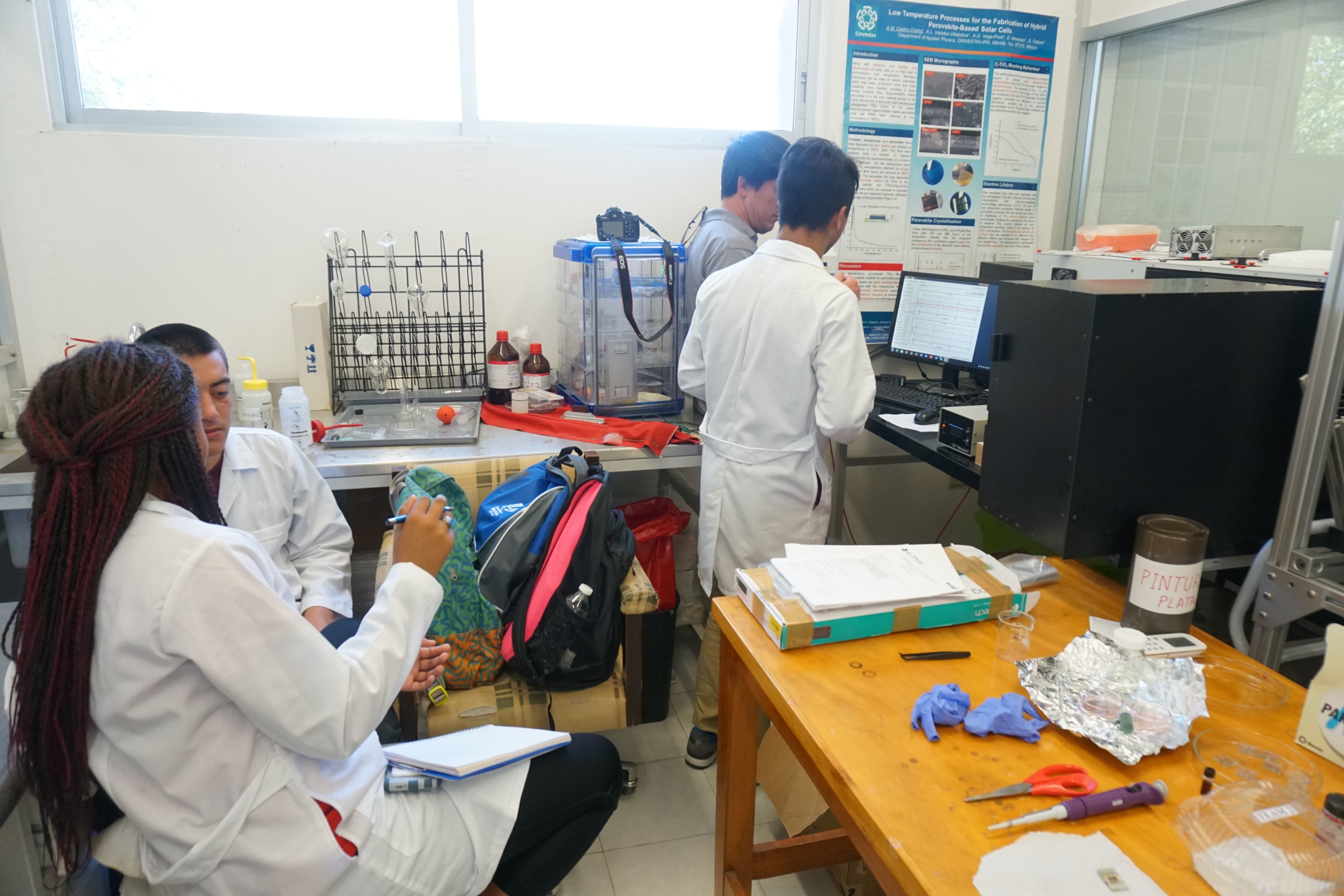
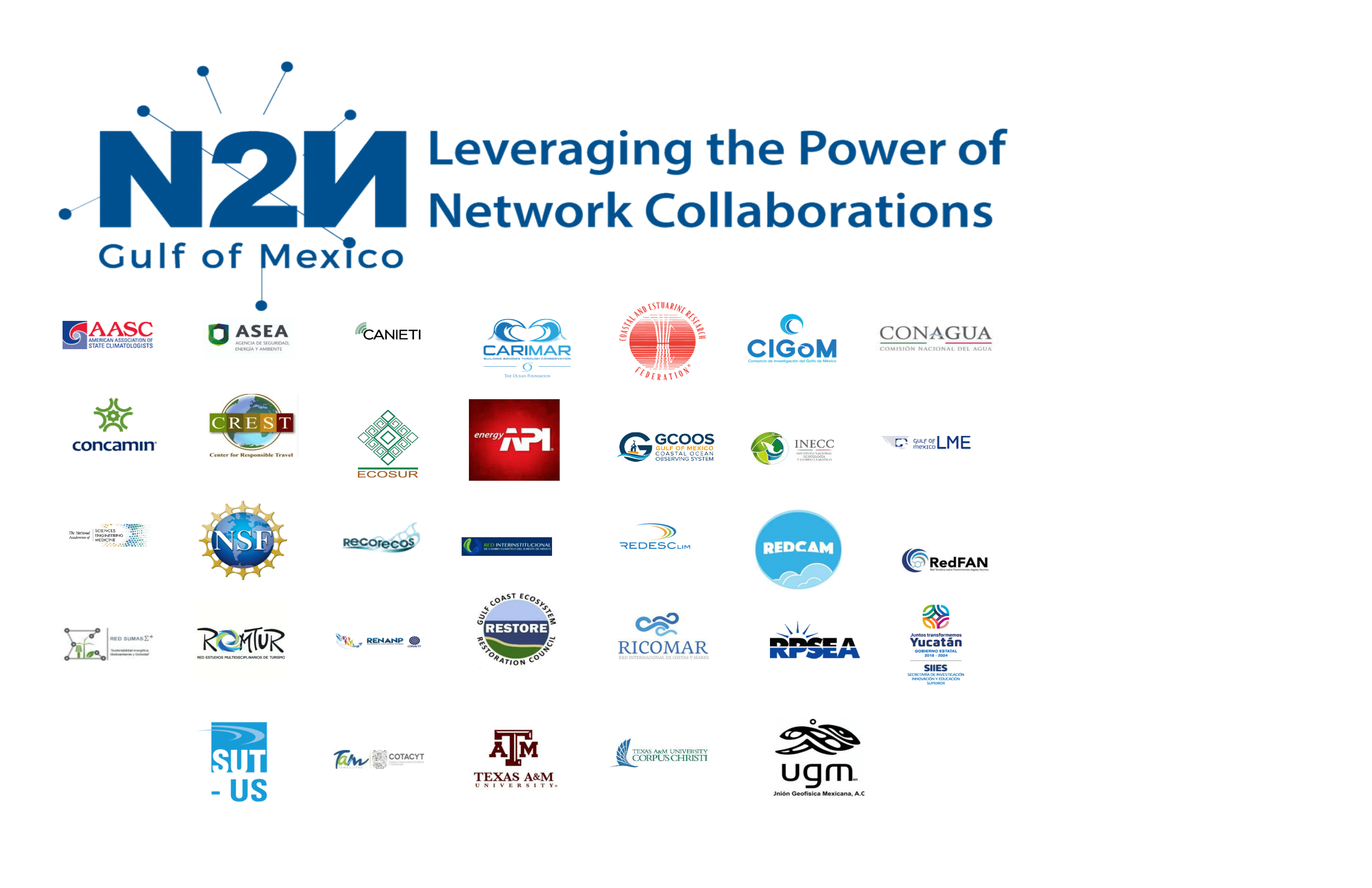
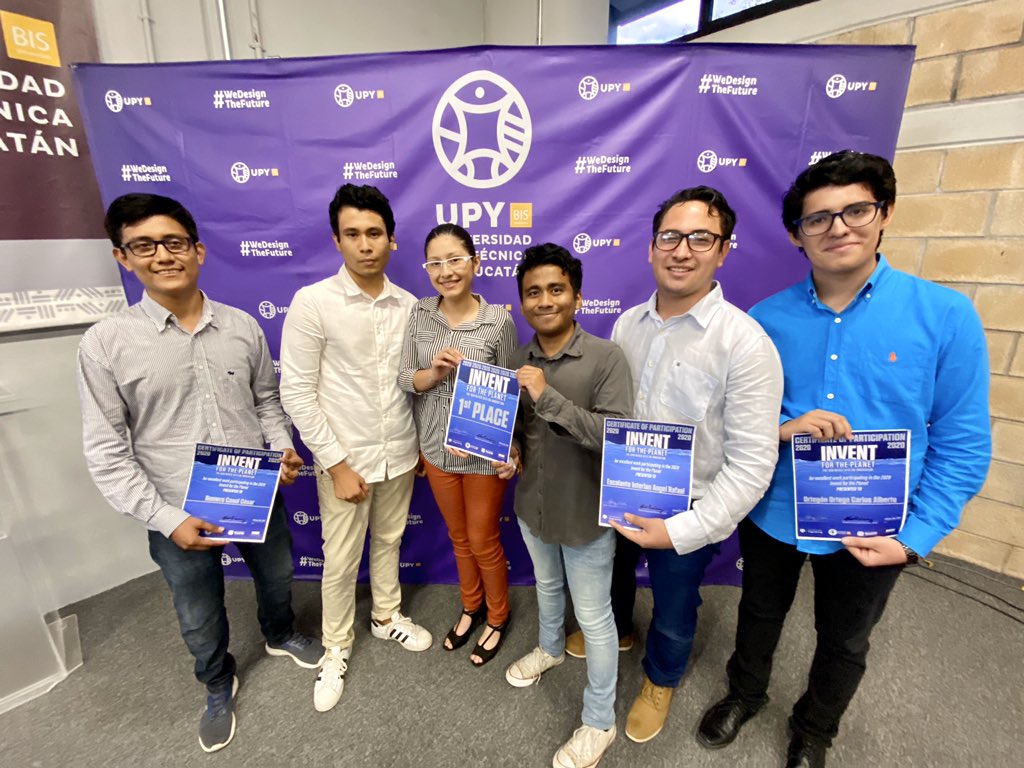
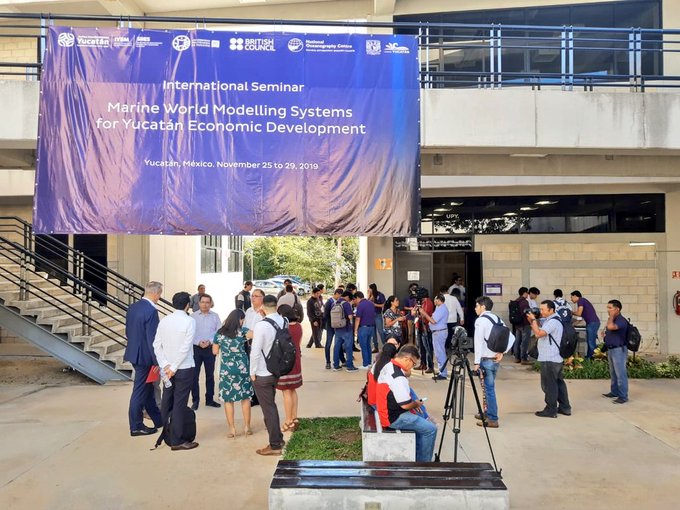
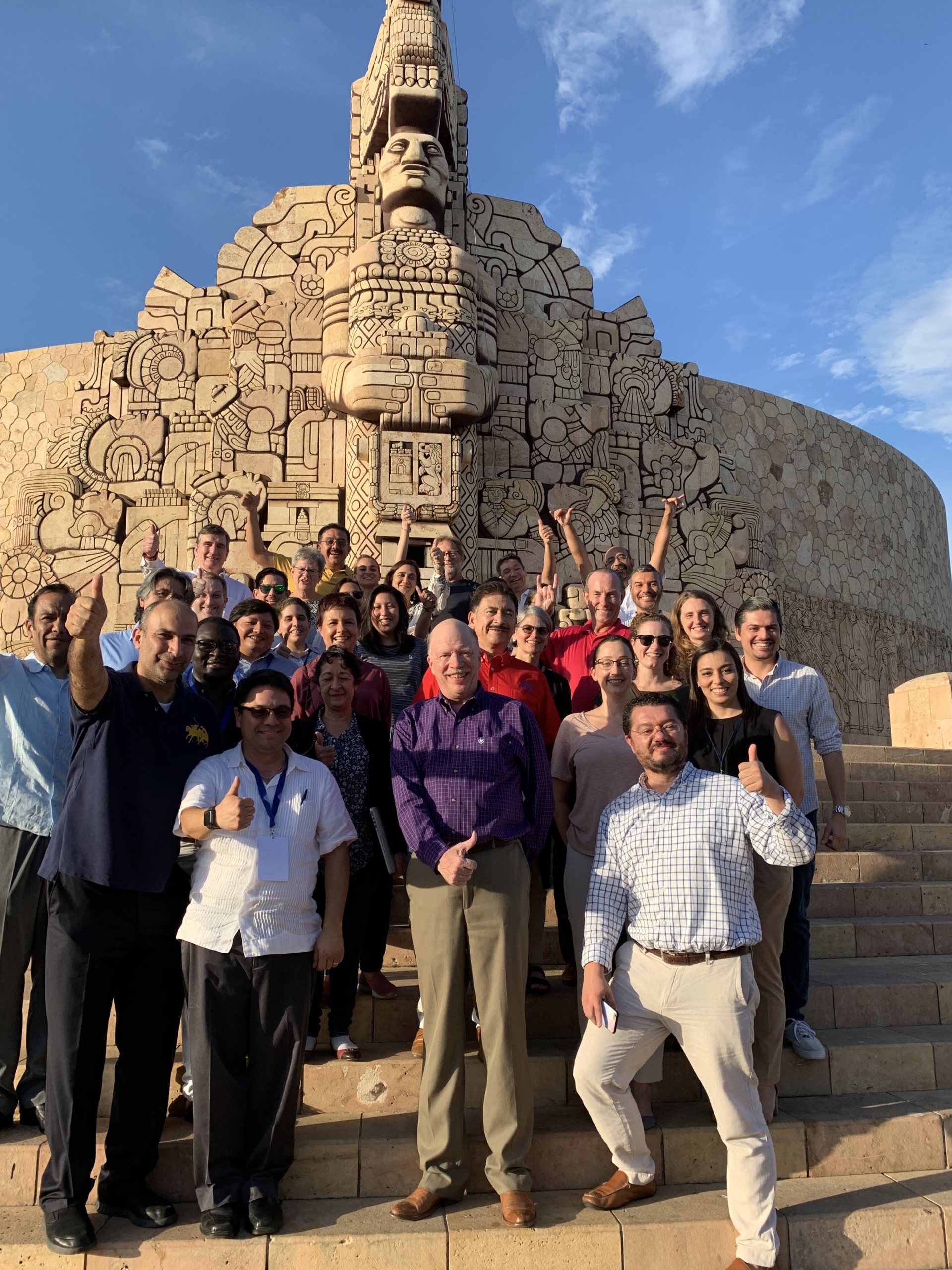
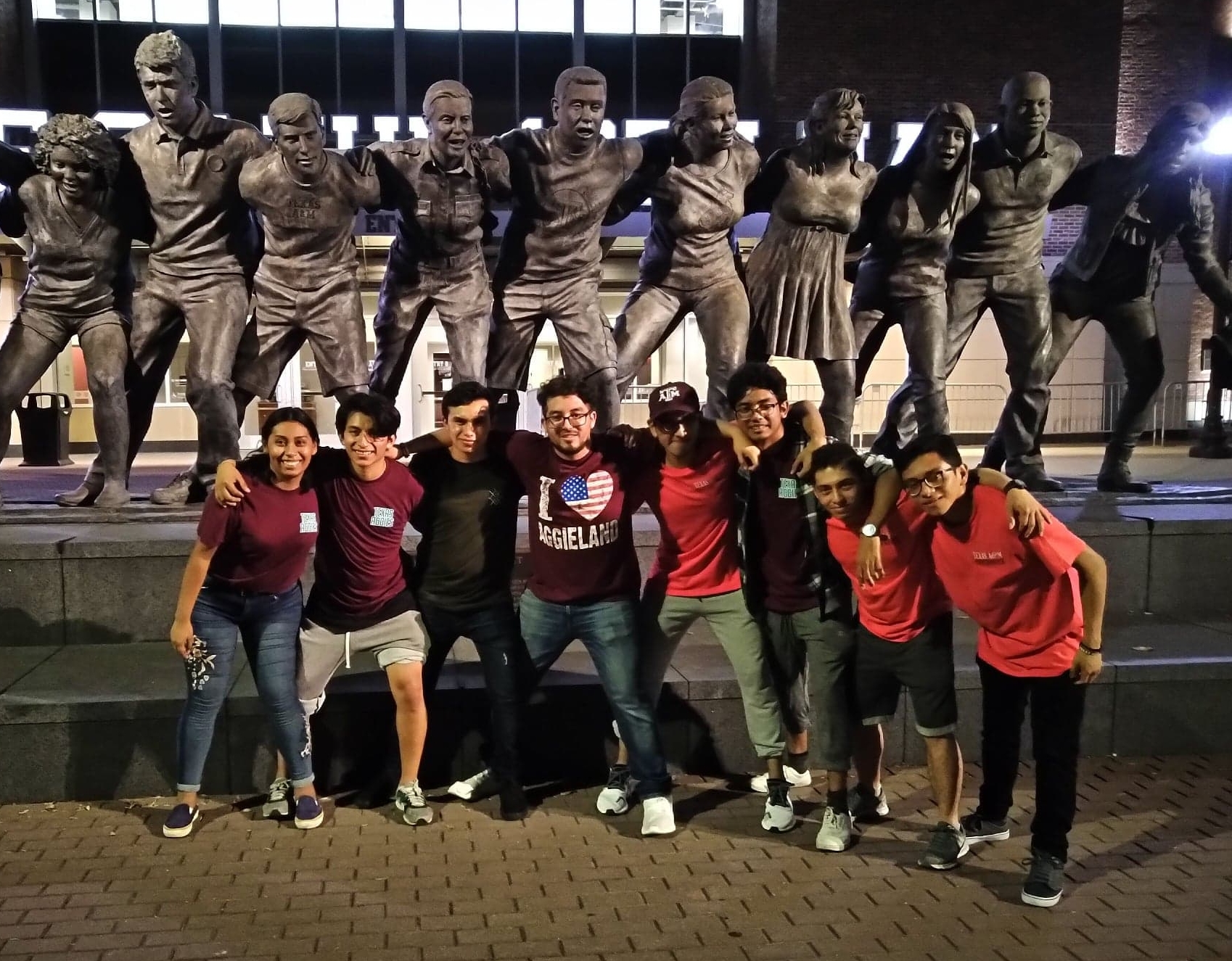
Follow Us